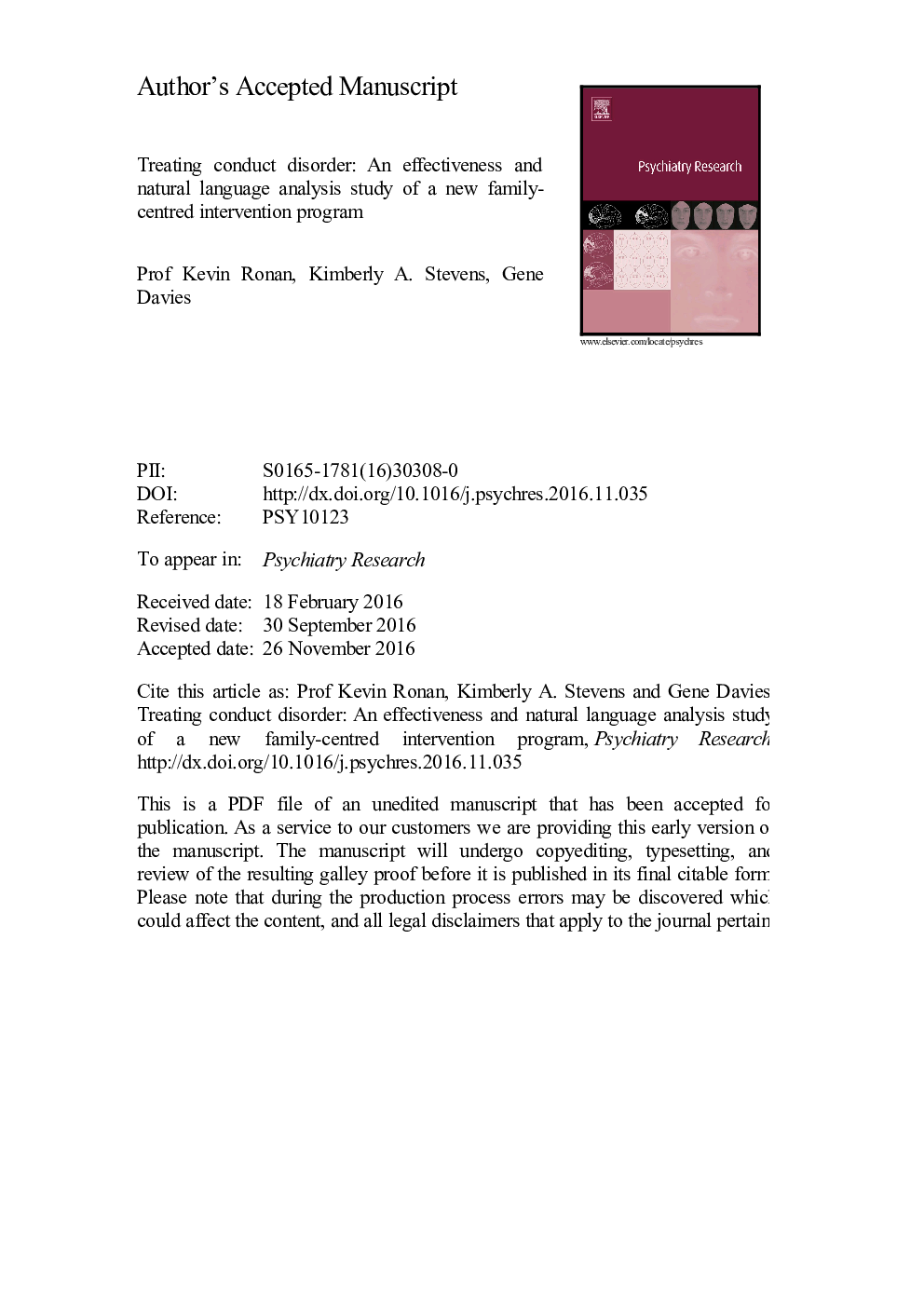| Article ID | Journal | Published Year | Pages | File Type |
|---|---|---|---|---|
| 4933582 | Psychiatry Research | 2017 | 22 Pages |
Abstract
This paper reports on a new family-centred, feedback-informed intervention focused on evaluating therapeutic outcomes and language changes across treatment for conduct disorder (CD). The study included 26 youth and families from a larger randomised, controlled trial (Ronan et al., in preparation). Outcome measures reflected family functioning/youth compliance, delinquency, and family goal attainment. First- and last-treatment session audio files were transcribed into more than 286,000 words and evaluated through the Linguistic Inquiry and Word Count Analysis program (Pennebaker et al., 2007). Significant outcomes across family functioning/youth compliance, delinquency, goal attainment and word usage reflected moderate-strong effect sizes. Benchmarking findings also revealed reduced time of treatment delivery compared to a gold standard approach. Linguistic analysis revealed specific language changes across treatment. For caregivers, increased first person, action-oriented, present tense, and assent type words and decreased sadness words were found; for youth, significant reduction in use of leisure words. This study is the first using lexical analyses of natural language to assess change across treatment for conduct disordered youth and families. Such findings provided strong support for program tenets; others, more speculative support.
Keywords
Related Topics
Life Sciences
Neuroscience
Biological Psychiatry
Authors
Kimberly A. Stevens, Prof Kevin Ronan, Gene Davies,
